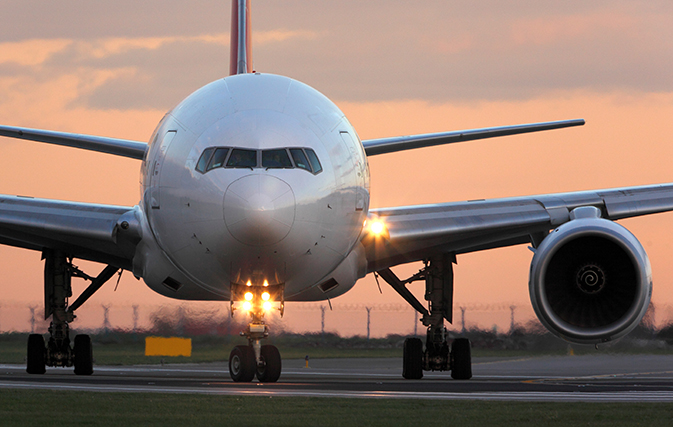TORONTO — The airline news flew at top speed in 2018.
Canada’s airlines expanded their route networks in a major way, and in the case of both Air Canada and WestJet, sharpened their focus on the highly coveted corporate and premium traveller segments.
Meanwhile the low-cost carriers and ultra low-cost carriers staked their claim (or in one case, slunk out of the market). Mainline carriers introduced entry-level basic economy fares to stay competitive, adding yet more fare classes to an already cluttered lineup.
Here’s a look at some of the top airline stories in 2018…
AIR CANADA
Business travellers travel more and spend a whole lot more. No wonder they’re such a sought-after segment. Air Canada introduced its Air Canada Signature Service in April 2018 for international flights, and in June 2018 on select flights within North America. The airline says its Air Canada Signature Service and Air Canada Signature Class brands reflect ongoing refinements to its premium travel service.
Meanwhile the past couple of years have been a whirlwind of new routes (and new route launches) for Air Canada, in keeping with its global expansion plans. At the height of the spring and summer 2018 route inaugurals Air Canada had introduced an astounding 74 new routes since 2016. The carrier has also increased capacity by more than 40% over the past three years.
The airline credits travel agent support with helping push Air Canada into the rankings as one of the top 10 airlines in North America.
Now the carrier has its eye on becoming one of the top 10 international carriers in the world.
The dog days of summer got a lot more interesting in 2018 with all the Deal or No Deal talk between Air Canada and Aeroplan parent company Aimia. Less than a week after Aeroplan parent company Aimia said it was eyeing charter flights to its most popular destinations, came the announcement in July that a new corporation headed up by Air Canada wanted to acquire Aeroplan for $2.25 billion, including $250 million in cash and $2 billion worth of Aeroplan points liability.
And with that Air Canada took back control of the valuable Aeroplan loyalty business that it created in 1984 and spun off in 2002.
WESTJET
At their recent trade partners event, WestJet’s VP Marketing Communications Richard Bartrem called it “the peanut butter approach” – serving up a product designed to please everyone. Trying to be all things to all people never works, and that’s why WestJet is aiming high for the premium market, and why it launched Swoop, for passengers who want to pay for a seat and seatbelt and not much else.
The first of 10 Boeing 787-9 Dreamliners ordered by WestJet will arrive in Calgary in early 2019, with two more arriving by April. The airline also has options for an additional 10 aircraft to arrive between 2020 and 2024.
The Dreamliners will carry 320 guests in a three-class cabin configuration, including WestJet’s new Business cabin featuring 16 private pods with lie-flat seats, an upscale Premium cabin and an updated Economy cabin.
WestJet is also focusing its attention on the revamping of its 737 fleet to 737 MAX, a rollout that will continue over the next 18 to 24 months.
WestJet had some challenging times in 2018, mostly notably with the threat of a pilot’s strike that grabbed headlines in April and May. The strike was thankfully averted but bookings took a hit. The carrier dusted itself off and kept right on going. WestJet recently announced deeper ties with codeshare partner Qantas, opening up Australia even more, and waits to hear if its joint venture with Delta will get the nod from regulators.
LCCs, ULCCs & BASIC ECONOMY
Norwegian came in. Primera went out and WOW is shrinking. Swoop launched its Canadian routes, and then (after an unexpected delay) its U.S. routes. And Air Canada Rouge marked its fifth anniversary.
It was a crowded market for low-cost carriers and ultra low-cost carriers in Canada in 2018, and that’s not even including Canada Jetlines, which after many years seems to be getting its ducks in a row but still has yet to announce an official launch date.
Not that many agents prioritize booking LCCs and ULCCs, and with good reason, since they’re generally marketed as a B2C product and in most cases the commissions are minimal to non-existent.
But the LCCs and ULCCs have been a major disruptor for mainline carriers, who have responded either with low-cost carriers of their own, like Rouge and Swoop, and/or introduced basic economy fares to cover their bases. Air Canada, WestJet and Transat all brought in basic economy fares in 2018.
Starting next spring, Norwegian will also launch the only transatlantic flight out of Hamilton International Airport (YHM) on March 31, 2019, with year-round, daily service to Dublin.
Swoop took flight with its domestic flights in June, and got permission to fly its U.S. routes in late October, not before garnering some headlines for missing its original target.
Meanwhile Air Canada Rouge marked its fifth anniversary with 53 aircraft, with 22 Airbus A319s, six Airbus A321s and 25 Boeing 767s. The LCC has flown more than 25 million passengers on 100 routes (up from an initial 14) on five continents.
There were some chuckles and raised eyebrows when the news hit in November that low-cost carrier Flair called in the RCMP to deal with a disturbance at the gate after a planeload of passengers, some of whom had been waiting for 14 hours, had their flight cancelled.
That said, Flair has expanded its network beyond Canada and into the U.S., although it announced in August that it would stop serving Hamilton International Airport and for now focus its attention in Ontario on Toronto Pearson. The LCC also serves Edmonton, Winnipeg, Calgary, Abbotsford, Victoria and Halifax.

